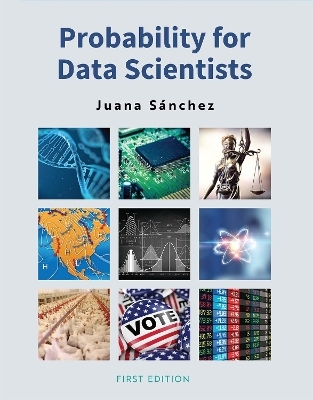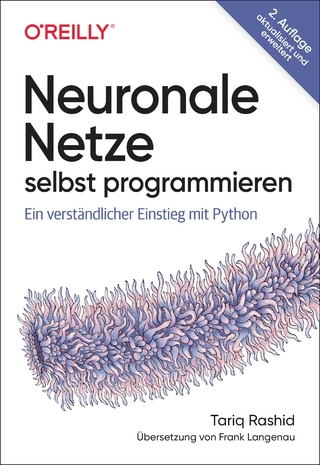
Probability for Data Scientists
Seiten
2019
Cognella, Inc (Verlag)
978-1-5165-3269-8 (ISBN)
Cognella, Inc (Verlag)
978-1-5165-3269-8 (ISBN)
Provides students with a mathematically sound yet accessible introduction to the theory and applications of probability. Students learn how probability theory supports statistics, data science, and machine learning theory by enabling scientists to move beyond mere descriptions of data to inferences about specific populations.
Probability for Data Scientists provides students with a mathematically sound yet accessible introduction to the theory and applications of probability. Students learn how probability theory supports statistics, data science, and machine learning theory by enabling scientists to move beyond mere descriptions of data to inferences about specific populations.
The book is divided into two parts. Part I introduces readers to fundamental definitions, theorems, and methods within the context of discrete sample spaces. It addresses the origin of the mathematical study of probability, main concepts in modern probability theory, univariate and bivariate discrete probability models, and the multinomial distribution.
Part II builds upon the knowledge imparted in Part I to present students with corresponding ideas in the context of continuous sample spaces. It examines models for single and multiple continuous random variables and the application of probability theorems in statistics.
Probability for Data Scientists effectively introduces students to key concepts in probability and demonstrates how a small set of methodologies can be applied to a plethora of contextually unrelated problems. It is well suited for courses in statistics, data science, machine learning theory, or any course with an emphasis in probability. Numerous exercises, some of which provide R software code to conduct experiments that illustrate the laws of probability, are provided in each chapter.
Probability for Data Scientists provides students with a mathematically sound yet accessible introduction to the theory and applications of probability. Students learn how probability theory supports statistics, data science, and machine learning theory by enabling scientists to move beyond mere descriptions of data to inferences about specific populations.
The book is divided into two parts. Part I introduces readers to fundamental definitions, theorems, and methods within the context of discrete sample spaces. It addresses the origin of the mathematical study of probability, main concepts in modern probability theory, univariate and bivariate discrete probability models, and the multinomial distribution.
Part II builds upon the knowledge imparted in Part I to present students with corresponding ideas in the context of continuous sample spaces. It examines models for single and multiple continuous random variables and the application of probability theorems in statistics.
Probability for Data Scientists effectively introduces students to key concepts in probability and demonstrates how a small set of methodologies can be applied to a plethora of contextually unrelated problems. It is well suited for courses in statistics, data science, machine learning theory, or any course with an emphasis in probability. Numerous exercises, some of which provide R software code to conduct experiments that illustrate the laws of probability, are provided in each chapter.
Juana Sánchez is a senior lecturer in the Department of Statistics at the University of California, Los Angeles, and DSS editor of the Journal of Statistics Education. She earned her Ph.D. from Washington University in St. Louis, Missouri, and her research interests include statistics indicators, multivariate statistics, STEM education, and time series.
| Erscheinungsdatum | 20.06.2019 |
|---|---|
| Verlagsort | San Diego |
| Sprache | englisch |
| Maße | 203 x 254 mm |
| Gewicht | 717 g |
| Themenwelt | Informatik ► Datenbanken ► Data Warehouse / Data Mining |
| Mathematik / Informatik ► Mathematik ► Wahrscheinlichkeit / Kombinatorik | |
| ISBN-10 | 1-5165-3269-4 / 1516532694 |
| ISBN-13 | 978-1-5165-3269-8 / 9781516532698 |
| Zustand | Neuware |
| Informationen gemäß Produktsicherheitsverordnung (GPSR) | |
| Haben Sie eine Frage zum Produkt? |
Mehr entdecken
aus dem Bereich
aus dem Bereich
Auswertung von Daten mit pandas, NumPy und IPython
Buch | Softcover (2023)
O'Reilly (Verlag)
CHF 62,85
Ein verständlicher Einstieg mit Python
Buch | Softcover (2024)
O'Reilly (Verlag)
CHF 41,85


